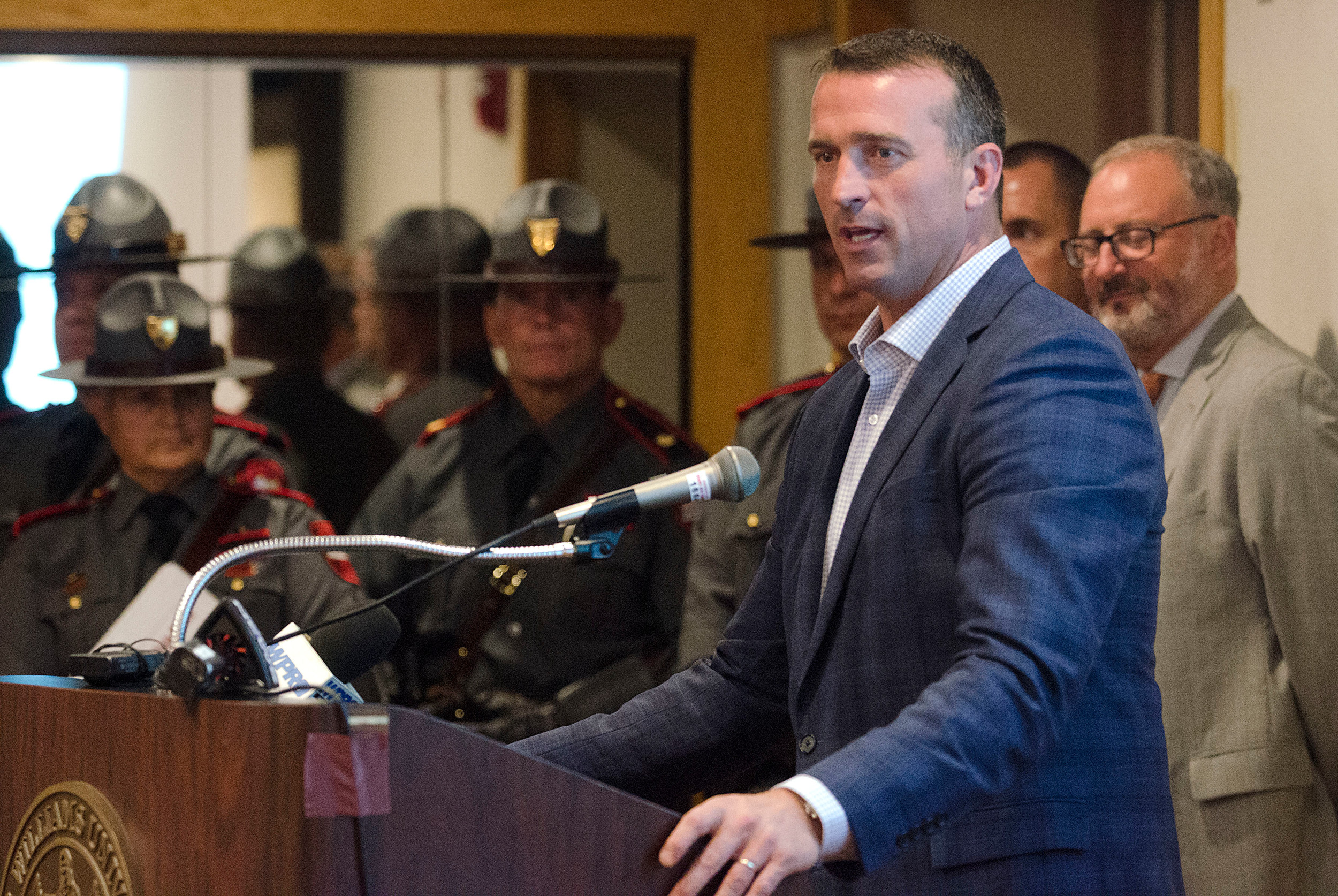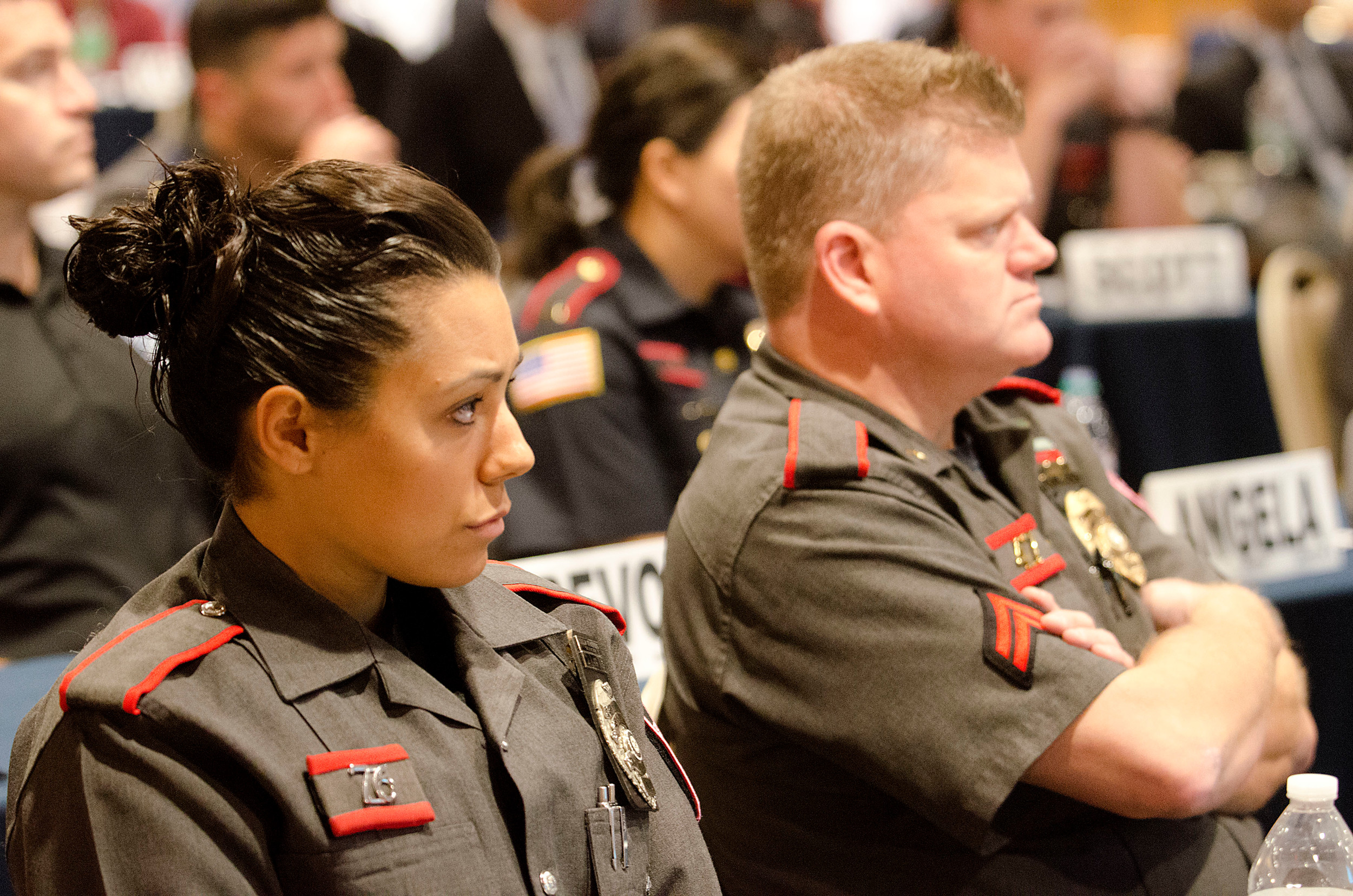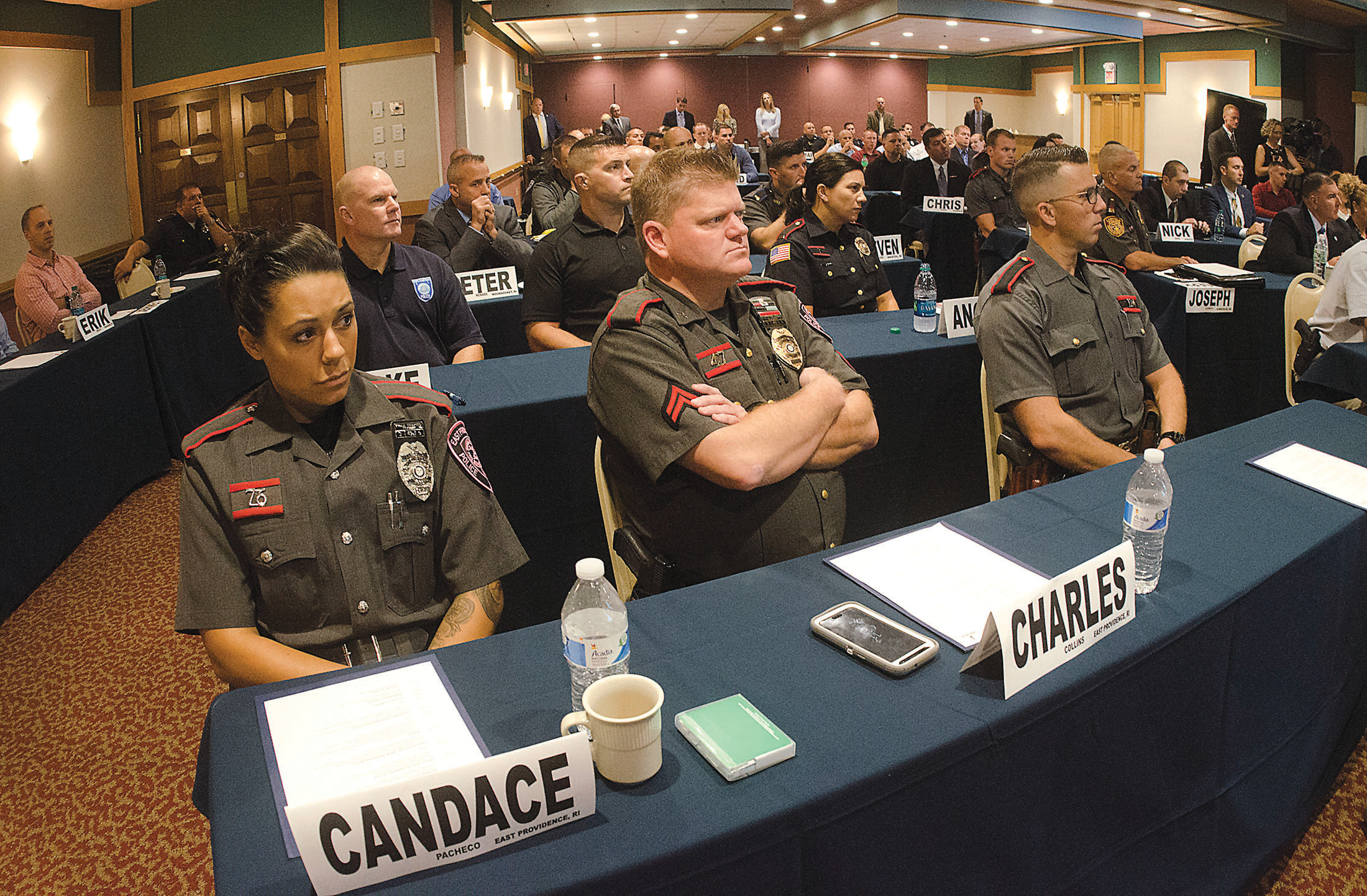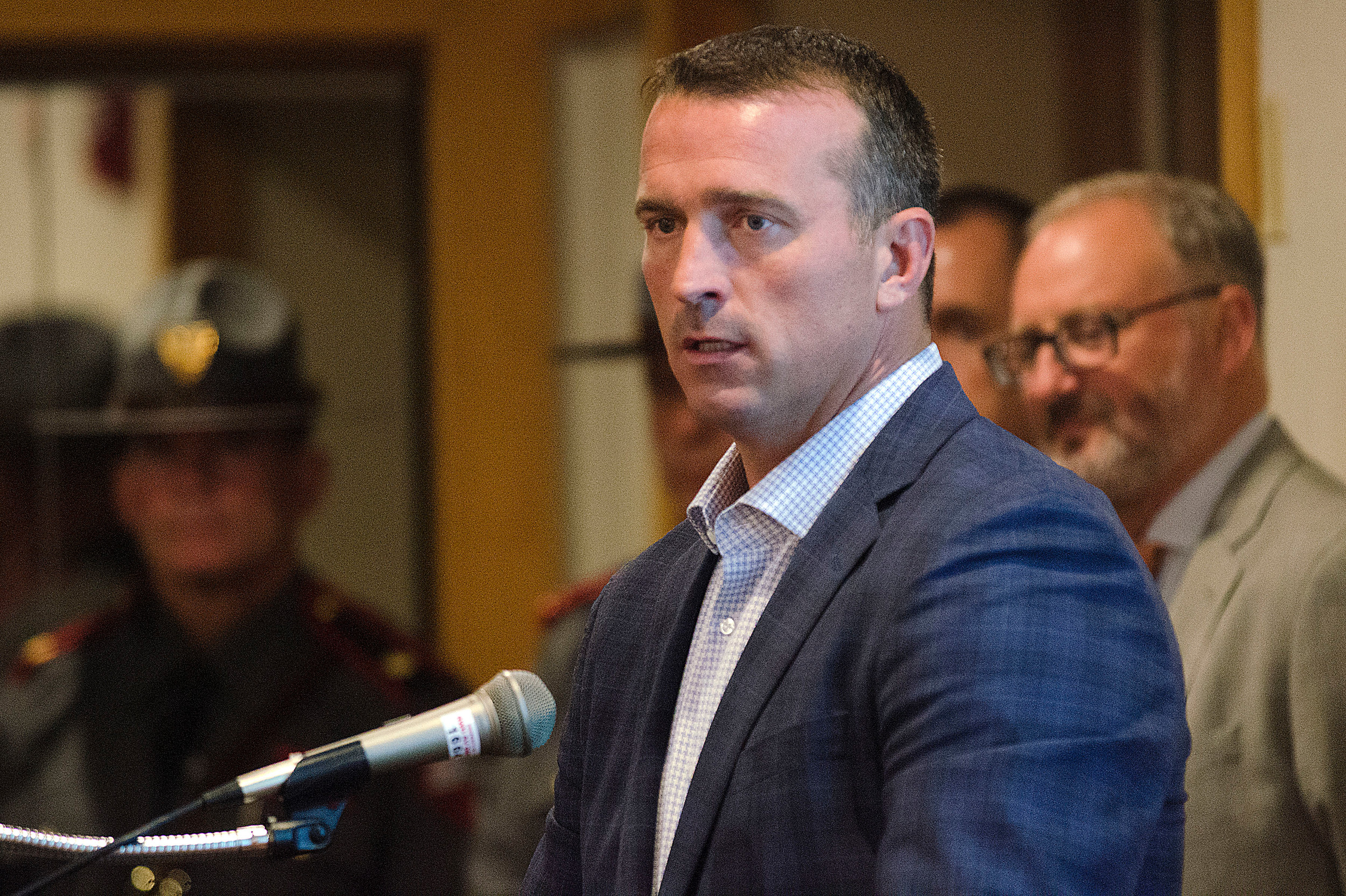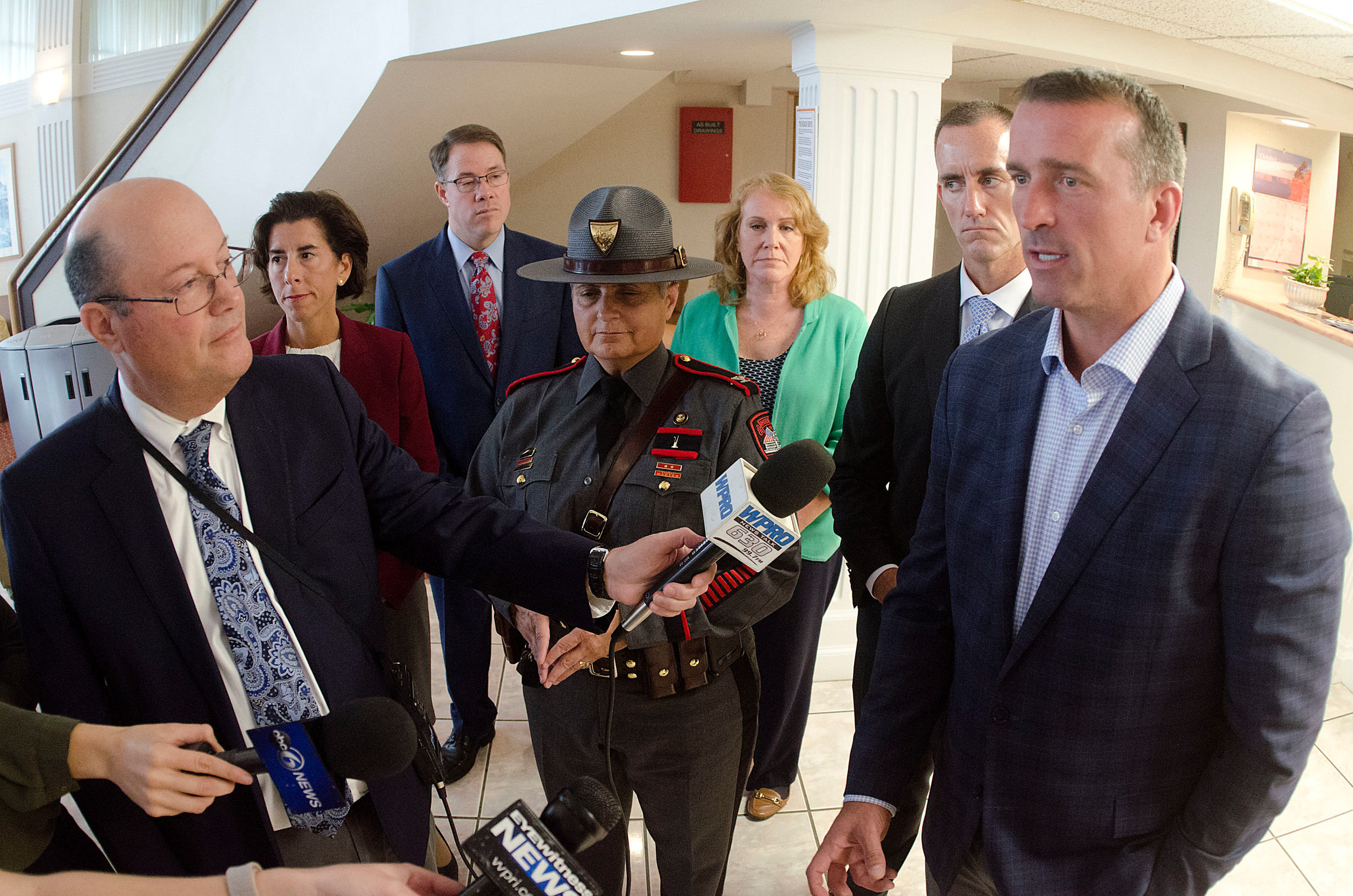Groundbreaking program trains officers on the front lines of the opioid epidemic
It was a packed house at the Roger Williams University conference center in Portsmouth on Monday morning, Oct. 1 when more than 80 members of law enforcement, representing cities and towns throughout …
This item is available in full to subscribers.
Please log in to continue |
Register to post eventsIf you'd like to post an event to our calendar, you can create a free account by clicking here. Note that free accounts do not have access to our subscriber-only content. |
Day pass subscribers
Are you a day pass subscriber who needs to log in? Click here to continue.
Groundbreaking program trains officers on the front lines of the opioid epidemic
It was a packed house at the Roger Williams University conference center in Portsmouth on Monday morning, Oct. 1 when more than 80 members of law enforcement, representing cities and towns throughout Rhode Island, gathered for the launch of the new HOPE (Heroin-Opioid Prevention Effort) initiative.
The first-in-the-nation program provides a framework for law enforcement to work with clinicians to identify at-risk individuals and connect them with recovery resources.
Formalizing that role as part of law enforcement has been a longtime paradox in the recovery community — one in which the sentiment "we're not going to arrest our way out of this program" is widespread and often said. Yet at the same time, for recovered addicts like keynote speaker Chris Herren, the former pro basketball player, Herren Project founder, and Portsmouth resident, enlisting law enforcement officers whose mission it is to ensure the public’s health and safety is an obvious fit.
Mr. Herren credits his survival, and 10-year recovery, to members of the Portsmouth Police department who attended to him following his final overdose. "The most empathetic people to me throughout my journey have been officers," he said.
The HOPE initiative is expected to have an impact on the overall number of overdoses in Rhode Island, which last year numbered 1,673 — 323 of which were fatal. It will be funded by state and federal grants and administered by the Rhode Island State Police under the leadership of Captain Matthew C. Moynihan, along with the Governor’s Task Force on Opioid Prevention and Intervention, and the state Department of Health, the Department of Behavioral Healthcare, Developmental Disabilities and Hospitals; and the Executive Office of Health and Human Services, according to a State Police statement.
Speaking at the event, Governor Gina Raimondo noted that nobody has gone unscathed by this epidemic which has hit Rhode Island especially hard, and that it has impacted every neighborhood, and every demographic in this state. She said that off all the issues she faces as governor, this opioid crisis is “definitely one that keeps me up at night the most.”
I have a lot of hope for this program; I know it's going to save lives….police offers are the first to respond, and they need and deserve the training to respond to people in crisis….other than to just cuff them and incarcerate them."
Mr. Herren spoke to the assembled officers just prior to the lunch break of their day-long program; for 20 minutes you could have heard a pin drop, as Mr. Herren recounted his heartrending journey from the highest of highs, as a young basketball phenom and hometown hero, playing for the Boston Celtics, to the lowest of lows, as a junkie on the verge of death who was told, in one cathartic moment, that the best gift he could give his children was to let them think he had been killed in a car accident.
Ultimately, Mr. Herren's story has a happy ending, one he credits to the support he received from everyone from officers to counselors to a former teammate. He speaks to about 250 audiences a year, in hopes of getting his message out to as many young people as possible. He notes that while stories like his — and others that don't have happy endings — are out in force, one thing that seems to be missing from these narratives are the beginnings; the addict's origin stories.
"I started when I was eighteen," said Mr. Herren. "But the reality of this issue is that it starts in people's basements. It starts with a red solo cup. It starts in the woods, at a high school party. We want to put so much focus on the end, but there's a beginning."

